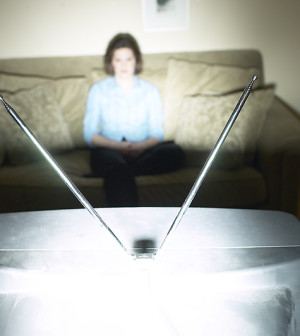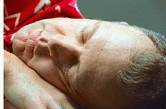- 8 Ways to Increase Dopamine Naturally
- 7 Best Breads for Maintaining Stable Blood Sugar
- Gelatin vs. Collagen: Which is Best for Skin, Nails, and Joints?
- The Long-Term Effects of Daily Turmeric Supplements on Liver Health
- Could Your Grocery Store Meat Be Causing Recurring UTIs?
- Are You Making This Expensive Thermostat Error This Winter?
- Recognizing the Signs of Hypothyroidism
- 10 Strategies to Overcome Insomnia
- Could Artificial Sweeteners Be Aging the Brain Faster?
- Techniques for Soothing Your Nervous System
Most Physical Activity Helps You Sleep Better


Certain types of physical activity help you sleep better, while others might leave you tossing and turning, a new study finds.
Researchers looked at data from a survey of more than 429,000 American adults. They found that activities such as walking, bicycling, running, weight lifting, aerobics/calisthenics, gardening, yoga/Pilates and golfing were all linked to better odds of a good night’s slumber.
But, people who got physical activity from household chores and child care had a greater risk of poor sleep, according to the study.
Results of the study were presented this week at the annual meeting of the Associated Professional Sleep Societies, in Seattle. Findings presented at meetings are generally viewed as preliminary until they’ve been published in a peer-reviewed journal.
The results of this study were surprising, according to study leader Michael Grandner, a psychiatry instructor at the Center for Sleep and Circadian Neurobiology at the University of Pennsylvania in Philadelphia.
“Not only does this study show that those who get exercise simply by walking are more likely to have better sleep habits, but these effects are even stronger for more purposeful activities, such as running and yoga, and even gardening and golf,” Grandner said in a university news release.
“It was also interesting that people who receive most of their activity from housework and child care were more likely to experience insufficient sleep — we know that home and work demands are some of the main reasons people lose sleep,” Grandner added.
“These results are consistent with the growing scientific literature on the role of sleep in human performance. Lab studies show that lack of sleep is associated with poor physical and mental performance, and this study shows us that this is consistent with real-world data as well,” he explained.
But since the study design only allowed the researchers to find associations between activity and sleep, instead of proof of a cause-and-effect relationship, more studies are needed, according to Grandner.
More information
The National Sleep Foundation offers healthy sleep tips.
Source: HealthDay
Copyright © 2026 HealthDay. All rights reserved.










